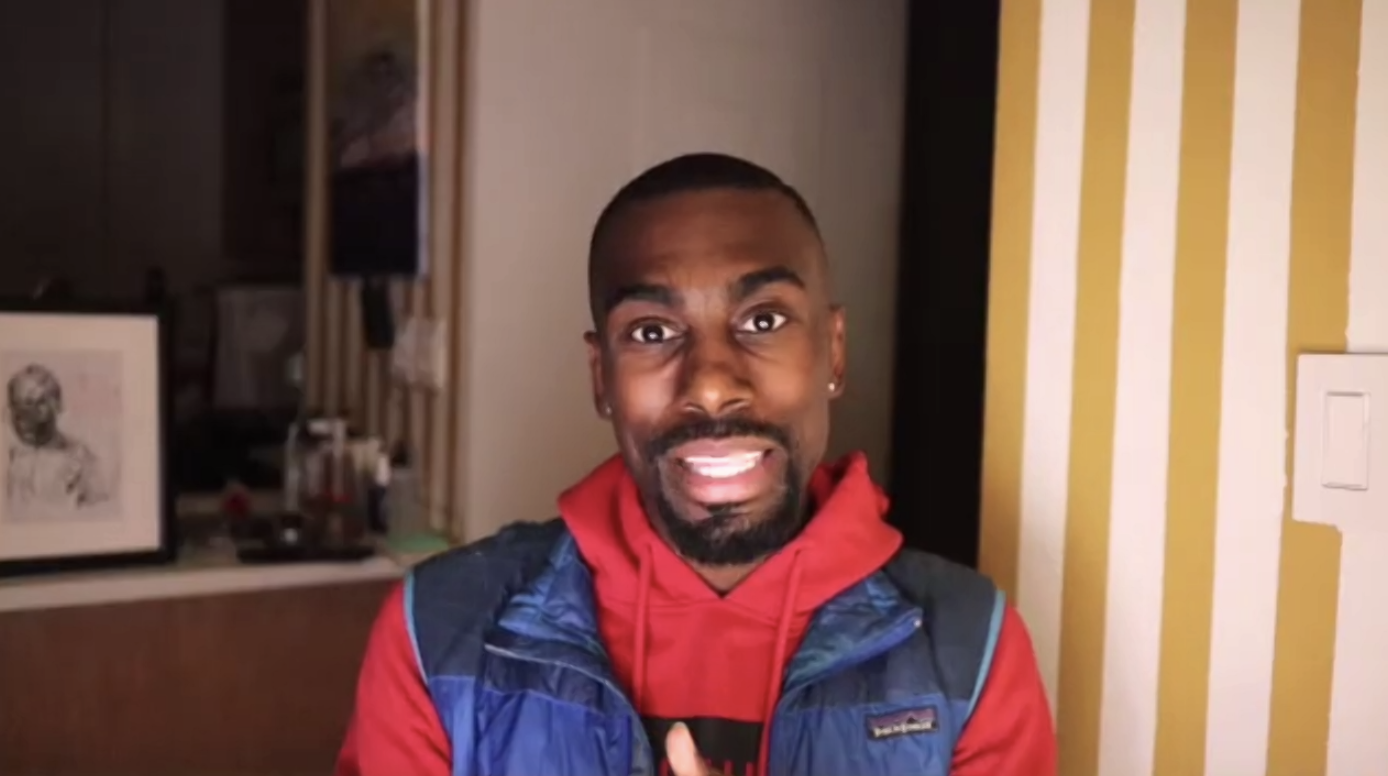DeRay Mckesson ’07 addresses police reform, Black Lives Matter in Zoom event
February 26, 2021
 Mackey O'Keefe
Mackey O'KeefeCivil Rights Activist and educator DeRay Mckesson ’07 joined Bowdoin students, alumni and families Tuesday evening via Zoom to speak on his experiences as an activist in the Black Lives Matter (BLM) movement and as Director of the Council on Criminal Justice Task Force on Policing. The event was part of the College’s series of programming on Black History Month.
Moderators Ayana Opong-Nyantekyi ’23 and Johari Joseph ’21 began by asking Mckesson a series of questions about his work and time at Bowdoin.
In response, Mckesson stressed his love and appreciation for the College.
“Bowdoin is where I fell in love with my mind,” he said.
Mckesson singled out the impact that government professors Barry N. Wish Professor of Government and Social Studies Paul Franco and Gary M. Pendy Professor of Social Science Jean Yarbrough had on his education. During his time as a student, Mckesson made an impact of his own at Bowdoin, too, apparent just from the level of engagement from the webinar’s attendees: the comment section was filled with greetings from former classmates.
Mckesson delved into a pivotal protest case he was involved in that went all the way to the Supreme Court. After being hit by a rock, a police officer, whose identity is still hidden under the alibi “John Doe,” claimed that Mckesson should be held liable for the incident on the grounds that, as a BLM organizer, Mckesson helped create the environment in which the event occurred. The Supreme Court ruled 7-to-1 in McKesson’s favor in November 2020.
Mckesson said in a Zoom interview with the Orient that, although he was relieved and happy to find out about the decision, he also noted the degree to which his life was impacted by the situation, adding that “nothing about it was exciting.” He had to spend four years in court, impeded by months of litigation.
In his talk, Mckesson next pivoted to his current work on policing reform. He expressed his vision for a future in which the current logic of our system of policing is rebuilt. In particular, Mckesson highlighted the fraught concept of enforcement, in which someone wields significant power over someone else—a power which can easily become violent.
Mckesson believes these changes to people’s conception of law enforcement are achievable within his lifetime. He is a member of the planning team of Campaign Zero, a national police reform campaign that has devised strategies for reducing opportunities for police violence.
“We are experts in policing,” Mckesson said of this work. “We created the national model around how people talk about police contracts.”
The model Mckesson discussed is highly data-driven, based on policy proposals that are statistically proven to reduce violence.
“Some of the numbers, we had to fight police departments to get them. We had to make public records requests to get them. Some of it was publicly available, but not necessarily easy to find,” he said.
One of the primary policy initiatives Mckesson was involved in creating is “#8CantWait,” a campaign centered around eight changes that police departments can immediately make to reduce police violence.
In response to a question about how compatible #8CantWait is with calls for defunding the police, McKesson said that he does not believe the two initiatives conflict.
“#8CantWait seeks to give police less power [immediately] … even if the police are defunded, they will still be around in the short term,” he said.
Morgan Edwards ’22, who attended the event, said this point particularly stood out to him.
“I know he’s received a lot of pushback for being reformist,” Edwards said in a Zoom interview with the Orient, using a term that refers to those who support reforming the police. “I thought that was super interesting to say, ‘Hey, in the long term, defund the police–that’s an admirable objective—but in the here and now … we might as well reform [police departments] as best we can, and make necessary changes, while at the same time still working to dismantle the institutes.’”
Mckesson’s talk had an immediate impact on other attendees as well. Right after the event ended, Khushi Patel ’23 reached out to Mckesson about volunteering with his organization.
“I ended up emailing him because he had said that he was on [Bowdoin Student Government] (BSG) throughout college,” Patel said in a Zoom interview with the Orient. “And I also did student government in high school, and I’m a part of BSG at Bowdoin.”
Patel was particularly inspired by Mckesson’s comments on how it’s easy to feel that your voice doesn’t matter.
“[You can feel like] it has to be like thousands of signatures and people gathering for [something] to matter, but every voice does matter, and you can make a difference,” she said.
She got a fast response from Mckesson himself.
“I thought that it was really cool how accessible he is and how passionate he is about Bowdoin. So I’m really excited to work with him and his organization a bit more,” Patel said.
Mckesson encouraged anyone who wants to get involved to email him at deray@deray.com.
“There are 18,000 police departments,” he said. “There’s a lot that can be done, and we’re trying to help people figure out how to be involved.”

Comments
Before submitting a comment, please review our comment policy. Some key points from the policy: